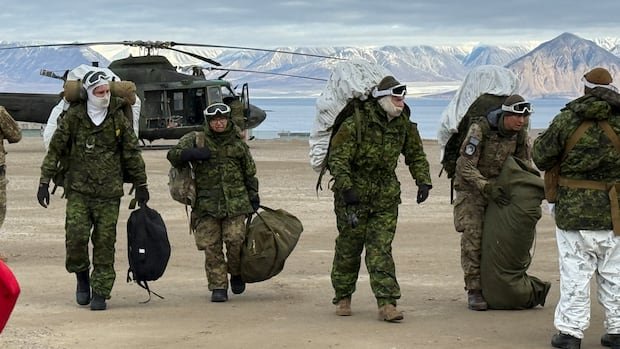More than 3,000 kilometers north of the Canadian capital, the Armed Forces of Canada assembled soldiers, ships, and aircraft in a remote region to address a critical question: how to intercept a foreign vessel aiming to avoid detection and evade capture. The scenario raised concerns about potential threats near sensitive military zones in the North.
The annual military exercise, known as Operation Nanook, gained significance this year due to shifting geopolitical landscapes, including China’s expanding interests in the Arctic, Prime Minister Mark Carney’s military enhancement plans, and the growing value of mineral resources in the North. CBC News obtained exclusive access to the exercise amidst rising interest from traditional adversaries in the Arctic’s mineral wealth and the emergence of new shipping routes through the Northwest Passage.
China’s focus on the Arctic has drawn close scrutiny from Canada’s military and coast guard. Recent incidents, such as the surveillance of a Chinese research vessel by the Canadian air force, underscore the strategic importance of monitoring foreign activities in the region. Concerns have been raised about China’s dual-purpose vessels gathering data that could have military applications, potentially compromising Canadian waters.
The evolving geopolitical situation in the Arctic has prompted renewed attention to the region’s resources and inhabitants. The outgoing premier of Nunavut stressed the necessity of investing in local communities to ensure economic stability and sovereignty over the Arctic. The federal government’s identification of an Arctic economic and security corridor underscores the strategic importance of the region.
In a recent military exercise, Canadian forces successfully located a suspicious vessel with the aid of advanced surveillance technology. The joint operation involving the coast guard and navy simulated the apprehension of individuals posing as intruders, highlighting the preparedness for potential security threats. The exercise demonstrated the military’s readiness to respond to real-world challenges in the Arctic.
Brig.-Gen. Dan Riviere, commander of Joint Task Force-North, emphasized the importance of vigilance and technological advancements in safeguarding Canadian waters. Canada’s ongoing defense procurement initiatives, including the acquisition of advanced surveillance systems and partnerships for radar development, aim to bolster maritime security and defense capabilities in the Arctic.


